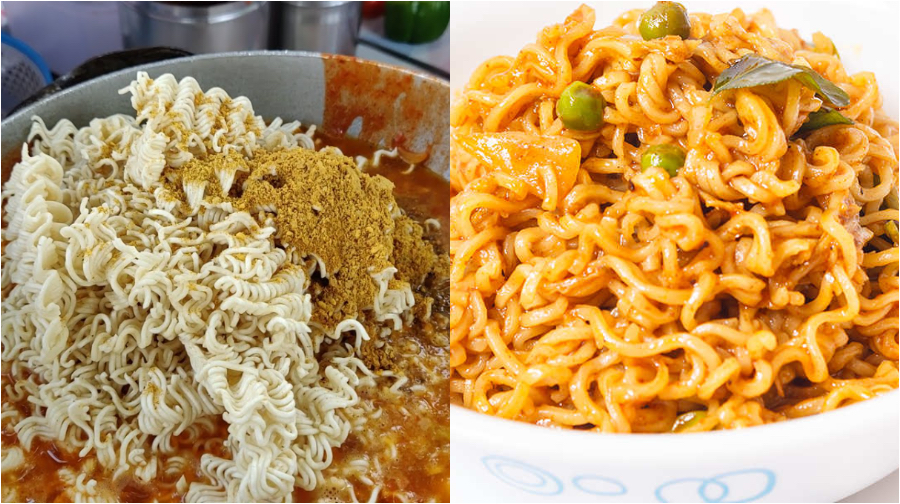
We know how hard it is to resist ice cream, chocolates, and of course French fries, and it’s almost impossible to stop at just one, or a few, without actually feeling hungry, because they seem to provide double dose of pleasure, the kind which plain “dal chawal” fails to elicit. And surprisingly, there’s a term for such kind of hunger where we eat just for pleasure, in the absence of hunger pangs – it’s called “hedonic hunger.” Finding comfort in certain food to relieve stress, fight boredom, and calm jittery nerves is quite common, but it can become a serious health concern when one cannot seem to find the pause button when our tummy is full but the brain still craves for food. Hyperpalatable food, with ingredients like sugar, sodium, unhealthy fat, and synthetic ingredients activate the reward center of the brain and trigger the release of “feel-good chemicals” that can put us in a constant state of craving, wanting to have more of such food. Also, since such food get easily digested, they cause sharp rise in insulin and the subsequent dip causes imbalance in blood sugar levels, leaving one hungry within a short span of time. The problem with such food is that they are high in calories, have unhealthy fat, sugar, and salt content – leading to weight gain. Also, regular intake of such food blunt the appetite regulation system in the body and override satiety signals, the reason you are in a constant state of hunger even after having enough food!

Always Hungry? Blame Hedonic Hunger!
Hedonic hunger causes a strong desire to consume food, even when there’s no need to replenish calories or energy. Evidence says emotional eating/stress eating is a major trigger. Under stressful condition, a lot of us just eat to feel better, without any hunger cues from the body. And the choice of food is high calorie stuff such as sweets, fast food. These foods that are high in salt, sugar, fat, synthetic ingredients such as MSG, tend to have strong and intensive flavours (all of them come under the “hyperpalatable category”, and the kind that’s too good to put down, with a stronger effect on the reward mechanism of the brain, leading to release of “happy hormones” such as serotonin, endocannabinoids, opiates, dopamine that promote positive feelings of pleasure and happiness. Researchers say these foods affect the brain’s reward circuit in the same way as cocaine and gambling.

Frequently overeating hyperpalatable foods saturate the brain with so much dopamine and other happy chemicals that over a period of time, it desensitizes itself, and as a result, more of high sugar and fatty food is required to elicit the same kind of pleasure that it had experienced earlier with relatively smaller quantity of such food. It’s the reason why you can’t stop eating, especially fast food, desserts, and sweets!
So, What Triggers Hedonic Hunger?
1. Stress.
2. Visual cues, advertisements.
3. Smell.
4. Food memories.
5. Pictures of food.

Tips To Correct Hedonic Hunger:
1. Reprogram your Tastebuds to Fall in Love with Healthy Food: People with hedonic hunger find healthy food “bland” and “tasteless” because their palate and taste buds have gotten used to intensive flavours from sugary, salty, and highly processed food. To such a palate, healthy food may seem absolutely without any taste, but the good news is that you can actually re-program your palate to like and actually enjoy healthy food and this re-training will help you lose weight. Read about “23 Ways To Reprogram your Taste Buds to Like Healthy Food.” Also, check out Rati Beauty Diet that helps you lose weight by encouraging you to eat the right kind of food in the right quantity, so that you can successfully lose extra pounds.
2. Identify hyperpalatable foods and avoid them completely. To make things easier for you, here’s a list of “10 Hyperpalatable Foods and How They Trigger Weight Gain.”
3. Boost Functioning of Leptin Hormone: Ghrelin is the the “hunger” hormone which signals the brain that it’s time to replenish energy and that the body needs food to do so whereas leptin (satiety or fullness hormone) signals the brain that there’s enough energy and your appetite decreases, and you would stop craving for food. In short, leptin (which is secreted by fat cells) regulates appetite and signals the brain that you have had enough food. Leptin and ghrelin usually work in unity, maintaining an optimum balance, ghrelin rising only when there is a need to replenish energy and leptin signalling when there’s enough calories and energy in the body. However, when leptin function gets impaired, leptin fails to send signal to the brain, and the body tends to pile on calories, uncertain of when to stop eating. As a result, one tends to overeat and gain weight in the process. Leptin resistance can also slow down your metabolism. All these factors not only prevents weight loss, they can make you gain weight with each meal. When someone becomes leptin resistant, it becomes very difficult to lose weight because the body is always in a state of hunger and does not realize that it has enough energy in the system. Read how you can boost the functioning of leptin hormone in this post.
3. Find Other Ways to Release Happy Hormones: Exercise, getting a nice massage, laughing, recalling happy memories, listening to music can all trigger the release happy hormones from the brain without indulging in unhealthy eating.
10 Hyperpalatable Foods and How They Trigger Weight Gain
How To Reprogram your Taste Buds to Like Healthy Food








